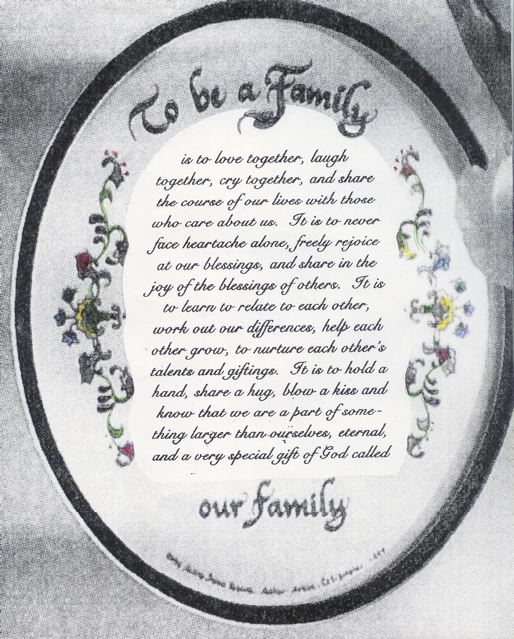One of my earliest memories of my mother losing her temper in public occurred when I was four or five years old, and we were at the grocery store.
A woman approached us and said, “What a cute little girl! Where did you get her from?”
“What?”, asked my mother.
“Well, she is adopted right?” asked the woman.
I cannot recall exactly what my mother said, but I do recall that she used words that most people would not repeat in polite conversation. It wasn’t the first time that happened, nor was it the last.
As I mentioned before, I am biracial. My father is Chinese and my mother is mainly of Northern European heritage. (Indeed, a recent DNA that I took to determine if I carried certain genes that would put me at a greater risk for cancer revealed that all but .09% of my mother’s heritage was Northern European.) To say that we look nothing alike is an understatement.
Still, she was my biological mother, and it drove her crazy whenever anyone doubted it. My mother didn’t realize it, but in my young and impressionable mind “adopted” became a sort of insult. Seeing her become so upset whenever anyone assumed she had adopted me made me upset as well. I associated being adopted with being somehow “lesser,” or not a “real” child.
I was not alone in this. When I was in elementary school, classmates teased other kids by saying, “Your parents aren’t your real parents! You were adopted!”
There were a few cases where I had classmates who were adopted and open about it and this inevitably lead to questions by other kids about whether they missed their “real parents,” as well as when those “real parents” were going to come and claim them.
Granted, as I got older, most adults around me would pay lip service in public to the statement that real parents are the ones who actually raise a child, but I noticed in private they didn’t feel that way. Case in point: I remember waiting for my mother one day in the teacher’s lounge. (At the time, she was working as a classroom aide at the school I attended.) There was a conversation about a fellow teacher who was thinking about adopting because she and her husband could not have “children of their own.” I remember one of the teachers commenting how very sad it was never to have the experience of having one’s “own children.”
These attitudes were far from unique. I noticed in entertainment articles that the adopted children of celebrities were often referred to as “the adopted children of ____________ celebrity,” rather than just “their children”. Despite what people claimed, there was a dichotomy that seemed to exist between biological and adopted children with the former being somehow more desirable.
As I grew older and eventually moved away from home to establish my own life, I thought less about this until I became pregnant 5 years ago with my first child. Like most parents, I wondered what my baby was going to look like. However, I was especially interested because my husband and I looked nothing alike. (He’s British with blond hair and blue eyes.) In my mind, I envisioned a child that looked like me but as it turned out, she ended up looking far more like her father than me, even though I thought she looked enough like me for others to know she was my biological daughter.
Still, one day it happened: we were out shopping, and a woman asked if I was really her mother.
To my surprise, I was not angry or insulted. Instead, I calmly replied that I was indeed the biological mother, and she would still be mine even if she had been adopted.
Ironically, it took having a biological child to wipe out any lingering stigma that “adoption” may have had in the deep recesses of my mind.
In my case, carrying the baby and giving birth was the easy part. It was all the hard work that followed the birth—the feeding, endless diapers, etc.—that made me truly feel like a “real” parent.
I finally knew what people meant when they said that it’s the people who raise a child that are the parents, and not necessarily the biological ones. In my case, I happen to have done both, but I do not feel that giving birth made me a mother. Rather, it was just the start of my journey to becoming a parent.
I wish everyone felt this way. Even though “adopted” no longer carries the stigma it once did, I wish there was a way to remove any stigma entirely.
In any case, when people meet my mother or see pictures of her, I no longer immediately point out she is my biological mother. If people ask if I was adopted I reply, “No, I am not, but that wouldn’t change the fact she is my mother.”
Likewise, I hope if my daughter is ever asked that question she will either reply in a similar way or just say that I am her mother—period.
Love elephant and want to go steady?
Sign up for our (curated) daily and weekly newsletters!
Editor: Travis May
Photo: elephant archives












Read 1 comment and reply